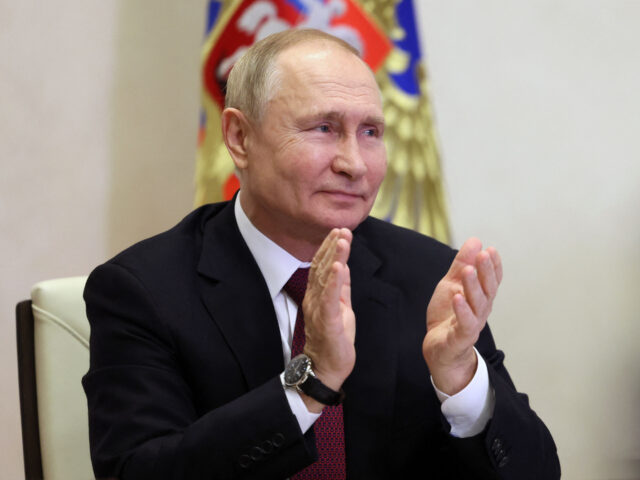The Western sanctions levied against Moscow over the war in Ukraine have insulated the Russian financial system from any potential impact of a possible banking crisis, the Kremlin has claimed.
Amid warnings of another global financial crisis in the wake of the failure of the Silicon Valley Bank (SVB) — the largest bank to collapse since the 2008 crisis — Russia says they believe the sanctions imposed by the United States, United Kingdom, the European Union, among others, have effectively “insured” the Russian economy from negative impacts of the burgeoning banking crisis.
Whether based in fact or not, the comments certainly resemble gloating or ‘trolling’ of the West as anxiety builds over the banking system.
Top Kremlin spokesman Dmitry Peskov said on Tuesday, according to the Russian state news TASS agency: “Our banking system has certain connections with some segments of the international financial system, but it is mostly under illegal restrictions from the collective West.”
But Peskov added: “We are, to a certain extent, insured against the negative impact of the crisis that is now unfolding overseas,” suggesting that he believes Russia may fair better than other countries tied into the Western banking system.
Next Bank to Fail? Shares in Credit Suisse Fall to All-Time Low After Bank Admits ‘Material Weakness’https://t.co/hVUsdIqbVC
— Breitbart London (@BreitbartLondon) March 14, 2023
Just days after the invasion of Ukraine last February, the European Union in cooperation with the United States, announced sanctions to ban major Russian banks from SWIFT, the Society for Worldwide Interbank Financial Telecommunication, a Belgium-based financial service that allows for banks around the world to conduct transactions quickly and reliably, with trillions being transferred across the system every year.
The ban initially caused chaos for the Russian economy and banking system, with the Ruble currency collapsing as millions of concerned Russians tried to withdraw their money from Russian banks. However, despite the early turmoil, the Russian currency ultimately rebounded to on par with pre-war levels, with the currency being propped up, in part, by Moscow’s ability to continue to sell its energy — albeit at a discount — to willing buyers such as India and Communist China.
The Kremlin has also been instrumental in attempting to use the BRICs alliance of emerging economies (Brazil, Russia, India, China, and South Africa) to establish an alternative currency to challenge the U.S. dollar, which has been the dominant global currency since the Second World War.
A key part of this strategy appears to be to woo bitter arch-rivals Saudi Arabia and Iran into joining the alliance, which would threaten the ability of the U.S. currency to function as the so-called ‘petrodollar’.
Should the BRICs nations join forces with Saudi Arabia and possibly Iran and threaten the petrodollar it may post dangers for the U.S. economy, as there could be dumping of dollars on world markets leading to high inflation.
Plurality of Germans Believe Sanctions Are Hurting Them More Than Russiahttps://t.co/8lrg3iMKLU
— Breitbart London (@BreitbartLondon) February 8, 2023
Follow Kurt Zindulka on Twitter here @KurtZindulka

COMMENTS
Please let us know if you're having issues with commenting.